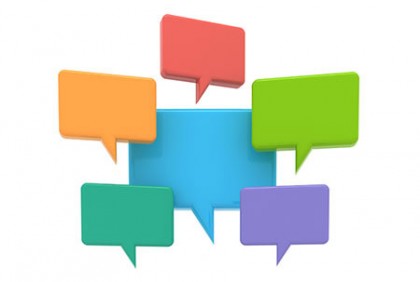Online Defamation: What you need to know
"I like to take a Zen approach to this," Mark Pearson says, "and suggest that people think very carefully about what they're going to be saying online, not be impulsive or engage in social media if they're under the influence of some substance, and to pause and think, 'If this was being said about me or about someone that I really respect, what would I think of them as a result of it?' And normally you would adapt what you were going to write or be content to have drafted it and not sent it, just so that you've at least expended that negative energy but haven't taken the legal risk by firing it off."
If you're an online writer or an avid social media user, it's also worth having an appreciation of the defences to defamation (see below for more info). If you can demonstrate that one applies to what you published, you won't be in any trouble.
"Tell the truth. That's a good start," says Justin Castelan. "The defences to defamation claims, there's a whole raft of them. The basic ones are truth, fair comment or honest opinion." For those falling into the content manager category (people who run web sites, blogs or social media pages where others have the ability to post comments), be aware that you can be held liable for what others write or post on your page. If you see something that could be considered legally dubious, don't hesitate to delete it, especially if someone requests you to do so."
"If someone is threatening legal action, people should always take legal advice," Mark Pearson says. "Even though that might be expensive, it can finish up being a lot less expensive than having some sort of court order against you. If you yourself believe that you have actually done the wrong thing, and that you have said something false or you can't substantiate it in any way and there's no actual legal action threatened, then you should just apologise and remove the material. But if the person is threatening legal action, you would first take legal advice before apologising, because lawyers might suggest the best framing of any words of an apology."
On the other hand, if you don't feel that you've done anything wrong (and have received legal advice regarding defences), issuing an apology might not be something you're interested in.
Despite having been on the receiving end of Australia's first high-profile Twitter defamation lawsuit, Julie Posetti's views on the benefits of social media, and what she calls its 'democratising effect', remain unchanged.
"It has given people who have felt misrepresented, underrepresented or maligned by the mainstream media an opportunity to correct the record, to go directly to journalists and to express their consternation, or to try to redirect journalists through example. It's enabled one-to-one communication on a much broader scale between citizens and politicians who are active on the sites that we're talking about here, mainly Facebook and Twitter, but also through blogs."
Sign up for breaking news, reviews, opinion, top tech deals, and more.
"And it's done the same for consumerism: the consumer watchdog effect of social networking sites. The ability for dissatisfied customers to effect change; I think that's pretty extraordinary as well. Even right down to the implications for the law, as it currently exists, in reference to governing behaviour. There's an opportunity for pushback there, with individual citizens campaigning on a range of issues. For me, the positives far outweigh the risks, but again there are significant risks and pitfalls which we're still working our way through."
Online defamation 101:

1. You are a publisher
If you post defamatory material in public online or via social media, in the eyes of the law you could be liable as a publisher. Defamation law traditionally focused on journalists and media companies as publishers, but the advent of the internet and social media in particular has made it much easier for ordinary people to legally defame others. A huge amount of defamation occurs every day, but only a slim percentage of cases are actioned. Check out 'The elements of defamation' further down this article.